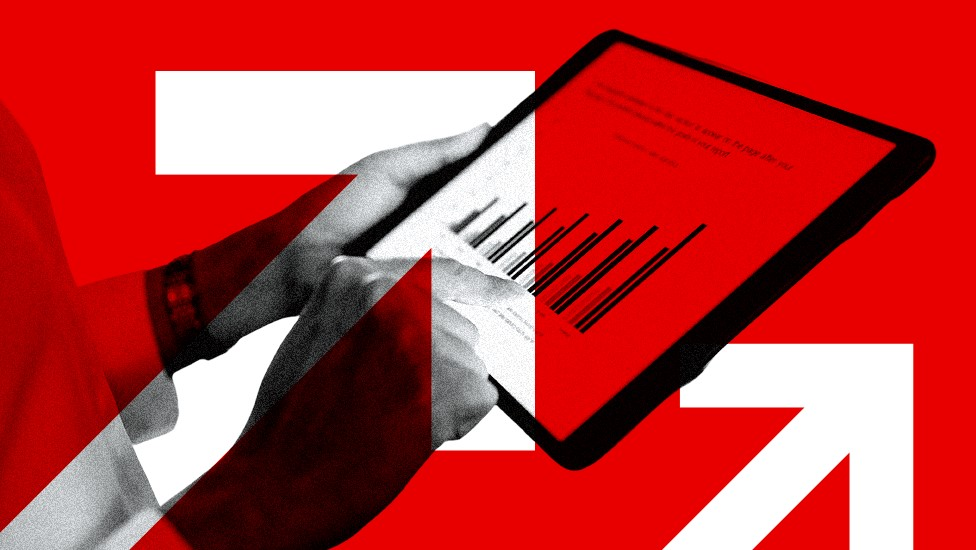ARTICLE AD BOX

Prices are rising in almost every aspect of life in the UK, and many people are struggling to cope.
BBC News has experts dedicated to helping audiences navigate the cost of living crisis. They are here to share tips, advice and solutions on saving money. To kick off the panel, we asked six of them what you could do.
It is important to explore what financial help you could be entitled to, as billions of pounds in benefits go unclaimed every year. For example, an estimated 850,000 low-income pensioner households that are entitled to pension credit fail to claim it. Benefits like these can be a gateway to other help, such as cost-of-living payments. You can check benefits calculators run by Policy in Practice and charities Entitledto and Turn2us.
Experts also advise drawing up a budget to take a close look at our debts and what we are earning, spending and saving. This could, for example, remind you of a subscription you are paying for a product or service you no longer use or need, which can be cancelled. The independent MoneyHelper website has a budget planner to get you started.
One of the things people are most concerned about at the moment is rising energy bills. While lots of people have pared back as much as they can, for others revisiting money-saving tips around the house could help them get a little more in control of their bills.
My favourite has always been the humble draught excluder. Splashing out on double glazing or solar panels is unaffordable for many people, and for those renting there's often even less you can do about badly insulated old homes. But a £2.50 draught excluder at the bottom of your door can save a decent amount, and make lots of rooms feel significantly warmer.
The one thing that will probably save you the most at the moment is reducing the temperature of your heating or your hot water. Even a degree or two lower can knock hundreds of pounds off an annual bill.
On energy bills, this message from Citizens Advice really sticks in my head: if you're struggling to pay, always try to contact your supplier. It's much better to get ahead of the game than to risk not paying and it becoming a bigger problem. Many suppliers have support funds in place for people who can't afford to pay, and they're obliged to help you find a solution. Their details should be on your bill.
More broadly, if you have any sort of money problems, talk to your friends, family, community organisations or advice centres. There may well be help available that you're not aware of, for example from your local council. Being better at talking about money could ease both the financial pressure you're facing - and the pressure on your mental health. No-one should be struggling alone.
Employers are crying out for workers, because there are more than a million jobs that need filling. You might assume this means that workers are in the driving seat when it comes to pay, but with the rate at which prices are rising - known as inflation - going up by almost 10% then any pay rise below that is actually a pay cut in real terms.
So what can you do? James Reed, chairman of recruitment website Reed.co.uk told me: "For most, the best way could be to secure a new job. For others, it may be a case of negotiating with their current employer." But he advises treading carefully when asking for a pay rise: "Consider your timing well, and stay attuned to the stability of the sector you operate in."
If a pay rise is not an option, he suggests asking about non-financial benefits such as flexible hours. However, public sector unions say their members are unable to cope with the cost of living. It's why hundreds of thousands of people could be on strike this winter.
Charts on financial screens may feel a long way from your own lives, but there is a direct connection to your household budget.
You might not think the value of the pound matters unless you're going on holiday. But a weak pound pushes up the price of everything we import from electronics to fruit and vegetables. So it's important to be aware of these price rises in the shops. That's especially the case for fuel by the way which the UK pays for in dollars.
And we've seen what can happen to mortgages if the cost of borrowing - interest rates - goes up. That could happen because the Bank of England decides to put up interest rates, or it could also happen because rates for borrowing over two or five years, say, are pushed up by trading in financial markets.
Buying a house or renewing an existing mortgage is one of the financial decisions that will have the biggest impact on your budget. So keeping across changes in that area are likely to pay off.
You may think that if a big business that you don't work for makes less money, it won't have much of an impact on your life. But you'd be surprised at the consequences for your day-to-day spending.
This is because the soaring cost of energy, food and raw materials means costs to businesses are up. Also, the cost of borrowing is also hitting company profits with even household-name companies having to pay double-digit interest rates for business loans. Many will pass these on by putting prices up for their customers.
It also means that very few companies are going to borrow to invest in their business. For us that means new factories will not be built, new jobs will not be created, research and development will not be expanded. And it's these things that help companies get bigger, make more money, pay more taxes, grow the economy and put more money into people's pockets.
Businesses have limited options. We have seen some substitute materials or ingredients for cheaper options. Some have reduced opening hours to save energy and staff costs.
But none of those options will make companies and therefore the economy grow. This means we need to watch out for signs of a recession this winter, which the Bank of England thinks may even have already started.

 2 years ago
44
2 years ago
44








 English (US) ·
English (US) ·